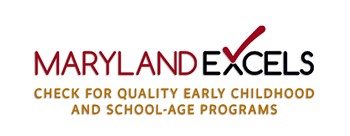Choosing the right child care program is a significant decision for any parent, family member, or guardian. Once you’ve determined your specific needs in a child care provider, the next step is to actively seek out programs that align with those requirements. Finding a nurturing, safe, and enriching environment for your child is paramount. While the process can feel overwhelming, understanding key aspects to look for and knowing where to find reliable resources can simplify your search.
When evaluating child care options, several critical factors should be at the forefront of your decision-making process. These factors range from the program’s quality and safety standards to its learning environment and the qualifications of its staff. Considering these elements will help you make an informed choice that best supports your child’s development and well-being.
Key Aspects to Consider When Choosing a Child Care Program
Navigating the world of child care requires careful consideration of various program attributes. Here’s a detailed look at what to prioritize when selecting a child care program:
1. Program Quality and Accreditation
Quality is arguably the most crucial aspect of any child care program. High-quality programs contribute significantly to a child’s early development, fostering social, emotional, and cognitive growth. Look for programs that participate in quality rating and improvement systems (QRIS) in your state or region. These systems, like Maryland EXCELS, assess and rate child care programs based on nationally recognized quality standards and best practices.
Accreditation from reputable organizations is another strong indicator of quality. Accredited programs voluntarily meet rigorous standards that go beyond basic licensing requirements, demonstrating a commitment to excellence in early childhood education.
2. Safety and Licensing
Safety is non-negotiable. Ensure that any child care program you consider is properly licensed by the relevant state or local authorities. Licensing ensures that programs meet minimum health and safety standards, including background checks for staff, child-to-staff ratios, and safety protocols.
Don’t hesitate to inquire about a program’s safety policies and procedures. Ask about emergency plans, supervision practices, and health and hygiene protocols. A transparent and forthcoming program will readily provide this information.
3. Learning Environment and Curriculum
A stimulating and age-appropriate learning environment is essential for children’s development. Observe the classroom setup and inquire about the program’s curriculum. A good program will offer a balance of structured activities and free play, promoting exploration, creativity, and social interaction.
Look for environments that are child-centered, where activities are designed to be engaging and developmentally appropriate. Consider whether the program’s philosophy and curriculum align with your values and your child’s learning style.
4. Qualified and Caring Staff
The quality of care is directly linked to the qualifications and dedication of the staff. Inquire about the staff’s education, training, and experience in early childhood education. Passionate and well-trained educators are better equipped to provide nurturing and stimulating care.
Observe staff interactions with children during your visit. Do they appear engaged, patient, and responsive to children’s needs? Positive and caring interactions are crucial for a child’s emotional well-being and development.
5. Cost and Financial Assistance
Child care costs can be a significant factor for families. Understand the program’s fee structure and inquire about any additional costs. Explore available financial assistance options, such as state-funded child care scholarship programs or income-based programs like Head Start and Early Head Start.
Being informed about costs and financial aid opportunities will help you make child care accessible and affordable.
Resources to Find Child Care Programs
Finding the right child care program can be made easier by utilizing available resources. Here are some valuable resources, particularly for families in Maryland, that can aid your search:
Maryland EXCELS
Maryland EXCELS is Maryland’s quality rating and improvement system. It provides an online platform to search for quality-rated Child Care Centers, School-Age Child Care Programs, Family Child Care Homes, and Public Prekindergarten programs.
 Maryland EXCELS Logo
Maryland EXCELS Logo
You can search for programs based on location, quality rating, program type, and even special services offered. Maryland EXCELS is an excellent starting point to identify programs committed to quality.
Head Start and Early Head Start
Head Start and Early Head Start programs are federally funded initiatives that support the comprehensive development of children from birth to age five from low-income families. These programs emphasize school readiness and provide health, nutritional, and social services.
Utilize the Head Start Locator to find programs in your vicinity. Head Start and Early Head Start offer comprehensive support for both children and families.
Maryland Family Network LOCATE: Child Care
Maryland Family Network offers LOCATE: Child Care, a service designed to help families find child care options. LOCATE can be accessed online or via telephone, providing personalized assistance in your search.
LOCATE allows you to search for child care based on various criteria, including location, child’s age, type of care needed, and desired hours. It’s a valuable resource for families seeking tailored child care solutions.
Financial Considerations
Understanding the financial aspects of child care is crucial. Be aware that some programs have income eligibility requirements. For families needing financial assistance, Maryland offers the Child Care Scholarship program. Researching these financial aid options can help make quality child care more accessible.
Verifying Licensing and Accreditation
Always verify that a child care provider is licensed or approved by the Division of Early Childhood in your state. You can also check for accreditation from state, regional, or national organizations through resources like checkccmd.org. Ensuring proper licensing and accreditation is a key step in safeguarding your child’s well-being.
Addressing Concerns
If you have reason to believe that a child care program is not adhering to state licensing laws, you have the right to file a complaint with the Regional Licensing Office. Complaints can be filed anonymously and will be investigated, ensuring accountability and upholding standards in child care.
Conclusion
Choosing a child care program is a multifaceted process, but by focusing on program quality, safety, learning environment, staff qualifications, and financial considerations, you can confidently navigate your options. Utilizing resources like Maryland EXCELS, Head Start, and Maryland Family Network LOCATE can significantly streamline your search and connect you with programs that best meet your child’s needs and your family’s priorities. Prioritizing these key aspects will help you secure a nurturing and enriching early learning experience for your child.
